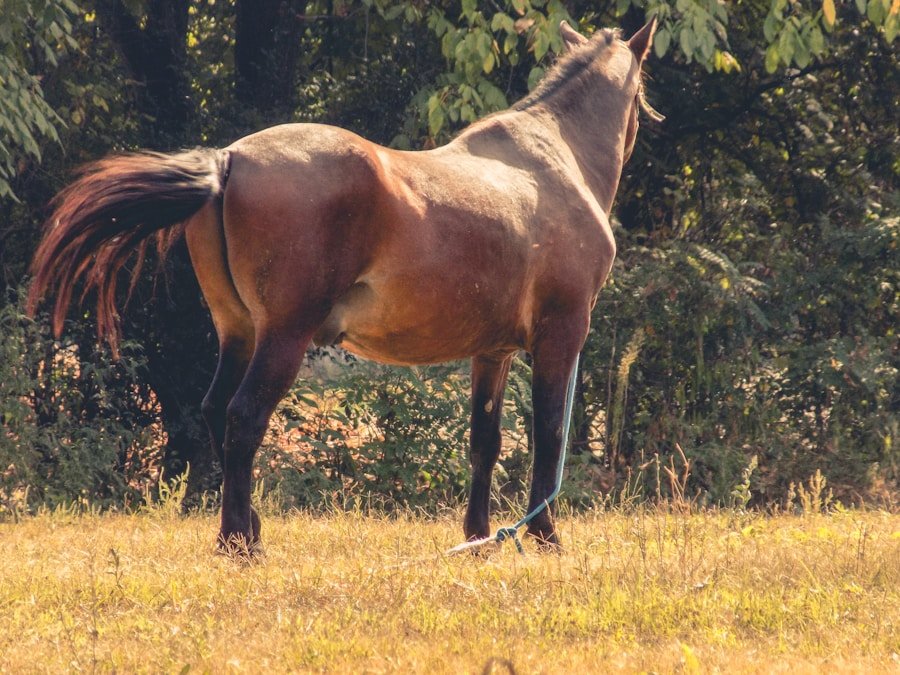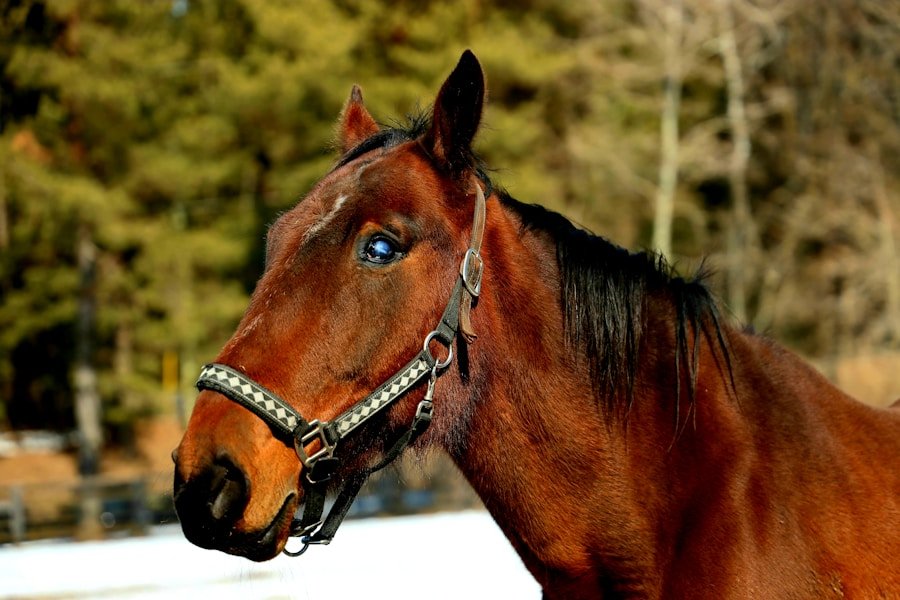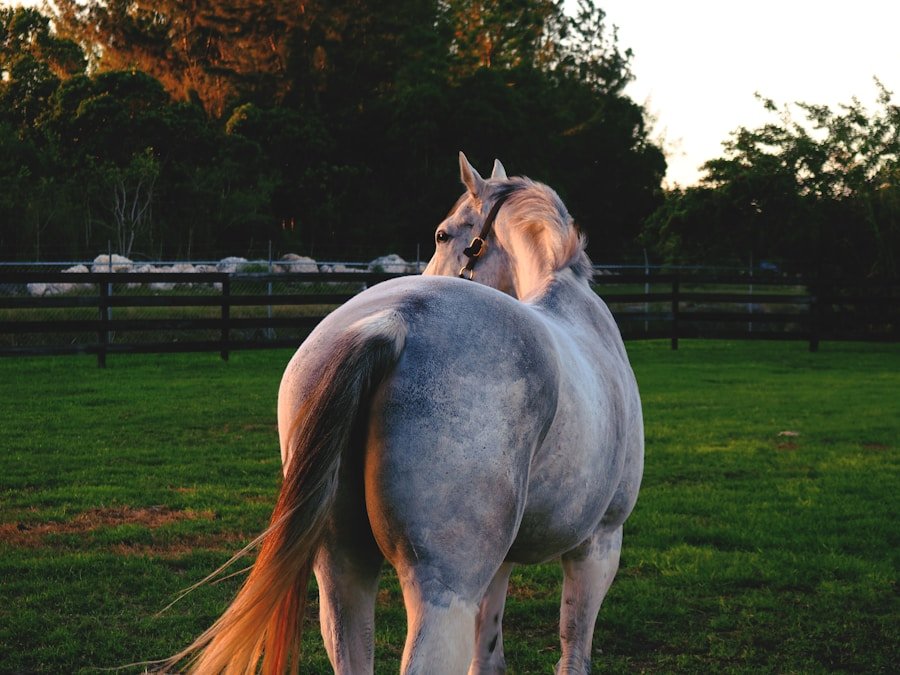Table of Contents
The Tennessee Walking Horse has a rich and storied history that dates back to the early 19th century in the United States. This breed was developed in the state of Tennessee, primarily to serve as a versatile riding horse for plantation owners and farmers. The origins of the Tennessee Walking Horse can be traced to a mix of several breeds, including the Narragansett Pacer, Thoroughbred, Morgan, and Standardbred.
These horses were bred for their smooth gaits and gentle temperaments, making them ideal for long hours of work on the farm and leisurely rides through the countryside. As the breed evolved, it became increasingly popular among the Southern gentry, who appreciated its unique gait and comfortable ride. The Tennessee Walking Horse was particularly favored for its ability to cover long distances without tiring, making it an excellent choice for both work and pleasure.
By the mid-20th century, the breed gained national recognition, and organizations such as the Tennessee Walking Horse Breeders’ Association were established to promote and preserve its unique qualities. Today, the Tennessee Walking Horse is celebrated not only for its historical significance but also for its contributions to equestrian sports and recreational riding. Here is the sentence: Learn more about different horse breeds at horse.
Key Takeaways
- The Tennessee Walking Horse originated in the southern United States in the late 19th century, known for its smooth gait and gentle disposition.
- Known for its unique running walk, the Tennessee Walking Horse is characterized by its elegant appearance, with a well-proportioned body and a naturally high head carriage.
- The Tennessee Walking Horse’s signature gait, the running walk, is smooth and comfortable for riders, making it a popular choice for trail riding and long distances.
- The Tennessee Walking Horse is a versatile breed, excelling in various disciplines such as trail riding, pleasure riding, and even in the show ring as a competitive show horse.
- Proper training and care are essential for the Tennessee Walking Horse, including regular exercise, grooming, and attention to hoof care to maintain their health and well-being.
Characteristics and Physical Appearance of the Tennessee Walking Horse
Physical Characteristics
Typically, Tennessee Walking Horses stand between 14.3 to 17 hands high, with a strong, muscular build that reflects their working heritage. Their heads are often described as being refined, with a straight or slightly convex profile, large expressive eyes, and well-defined ears.
Body and Coat
The neck is long and arched, leading into a broad chest and powerful shoulders that contribute to their impressive gait. In terms of coat color, Tennessee Walking Horses come in a variety of shades, including black, chestnut, bay, palomino, and gray. Many horses also exhibit unique markings such as blazes or socks, adding to their visual appeal.
Aesthetic Appeal
One of the most distinctive features of this breed is its smooth coat, which is often short and shiny. Overall, the Tennessee Walking Horse is not only a functional animal but also a beautiful one, making it a favorite among horse enthusiasts.
The Unique Gait of the Tennessee Walking Horse

One of the most remarkable aspects of the Tennessee Walking Horse is its unique gait known as the “running walk.” This gait is characterized by a smooth, gliding motion that allows riders to travel at a comfortable speed without bouncing in the saddle. The running walk is achieved through a specific four-beat rhythm where the horse’s hind foot steps down just before the front foot on the same side, creating a fluid motion that is easy on both horse and rider. In addition to the running walk, Tennessee Walking Horses are also capable of performing other gaits such as the flat walk and canter.
The flat walk is a slower pace that is equally smooth and comfortable, while the canter provides a faster option for those looking to pick up speed. The versatility of these gaits makes the Tennessee Walking Horse an excellent choice for various riding disciplines, from leisurely trail rides to competitive events.
The Versatility of the Tennessee Walking Horse
| Aspect | Information |
|---|---|
| Height | 14.3 to 17 hands |
| Weight | Average of 1000 pounds |
| Color | Various colors including black, bay, chestnut, and roan |
| Temperament | Gentle, willing, and calm |
| Uses | Trail riding, pleasure riding, showing, and endurance riding |
| Gaits | Flat walk, running walk, and canter |
| Distinctive Feature | Unique four-beat running walk |
The Tennessee Walking Horse is renowned for its versatility, making it suitable for a wide range of activities. Whether you are interested in trail riding, showing, or even driving, this breed can adapt to various equestrian pursuits with ease. Their calm demeanor and willingness to work make them ideal companions for riders of all skill levels, from beginners to seasoned equestrians.
In addition to recreational riding, Tennessee Walking Horses excel in competitive events such as pleasure shows and trail competitions. Their unique gaits allow them to stand out in the show ring, where they are judged on their performance as well as their conformation. Furthermore, many owners appreciate their ability to participate in family activities or serve as therapy animals due to their gentle nature and strong bond with humans.
Training and Care for the Tennessee Walking Horse
Proper training and care are essential for maintaining the health and well-being of a Tennessee Walking Horse. These horses thrive on consistent training routines that focus on building trust between horse and rider. Groundwork is an important aspect of training, as it helps establish communication and respect.
Once a solid foundation is built on the ground, riders can introduce various riding techniques that emphasize the horse’s natural gaits. In terms of care needs, a balanced diet is crucial for keeping a Tennessee Walking Horse healthy. High-quality hay or pasture grass should form the basis of their diet, supplemented with grains or concentrates as needed based on their activity level.
Regular veterinary check-ups are also important to monitor their health and prevent common issues such as colic or laminitis. Additionally, routine hoof care and dental check-ups will help ensure that your horse remains in peak condition.
The Tennessee Walking Horse in Show and Competition

Competitions and Judging
Competitions showcase horses in categories such as pleasure classes, trail classes, and performance classes where they are judged on their gaits, conformation, and overall presentation.
Promoting Ethical Training Practices
In recent years, there has been an increased focus on promoting ethical training practices within the show community. Organizations dedicated to preserving the integrity of the breed have worked tirelessly to ensure that horses are trained humanely and without harsh methods.
A Renewed Appreciation
This shift has led to a renewed appreciation for the natural abilities of the Tennessee Walking Horse and has helped maintain its popularity in competitive circles.
The Tennessee Walking Horse as a Companion and Therapy Animal
Beyond their impressive athletic abilities, Tennessee Walking Horses are also cherished as companion animals. Their gentle temperament makes them ideal for families looking for a horse that can bond with children and adults alike. Many owners find joy in spending time with their horses outside of riding activities; grooming sessions and leisurely walks can strengthen the bond between horse and human.
Additionally, Tennessee Walking Horses have gained recognition as therapy animals due to their calm demeanor and intuitive nature. They are often used in therapeutic riding programs that assist individuals with physical or emotional challenges. The soothing presence of these horses can provide comfort and support to those in need, showcasing their ability to positively impact human lives beyond traditional equestrian activities.
Preserving and Protecting the Tennessee Walking Horse Breed
As with many horse breeds, preserving the integrity of the Tennessee Walking Horse is essential for future generations. Various organizations are dedicated to promoting responsible breeding practices and ensuring that horses are trained ethically. These efforts aim to protect the breed from potential health issues associated with improper training methods or breeding practices.
Moreover, education plays a crucial role in preserving this beloved breed.
Through community engagement and advocacy efforts, we can work together to protect this remarkable breed for years to come.
In conclusion, the Tennessee Walking Horse is not just a beautiful animal; it embodies history, versatility, and companionship. With proper care and training, these horses can provide joy and fulfillment to their owners while continuing to shine in various equestrian disciplines. Whether you are drawn to their unique gaits or their gentle nature, there is no denying that the Tennessee Walking Horse holds a special place in the hearts of many horse lovers around the world.
If you’re interested in learning more about caring for unique and majestic animals, you may also enjoy reading about the Maine Coon cat. Just like the Tennessee Walking Horse, the Maine Coon is known for its impressive size and gentle nature. This article provides a comprehensive guide to understanding and caring for these beautiful felines.
FAQs
What is a Tennessee Walking Horse?
A Tennessee Walking Horse is a breed of horse known for its unique four-beat running-walk gait, which is smooth and comfortable for riders.
What are the characteristics of a Tennessee Walking Horse?
Tennessee Walking Horses are known for their gentle disposition, intelligence, and smooth gaits. They are typically medium in size, with a well-muscled and balanced build.
What is the history of the Tennessee Walking Horse breed?
The Tennessee Walking Horse breed originated in the southern United States, specifically in Tennessee. It was developed as a versatile and comfortable riding horse for plantation owners and farmers in the 19th century.
What are the uses of Tennessee Walking Horses?
Tennessee Walking Horses are used for various equestrian activities, including trail riding, pleasure riding, and showing. They are also popular for their use in therapeutic riding programs due to their smooth gait.
Are Tennessee Walking Horses prone to any health issues?
Tennessee Walking Horses can be prone to certain health issues, including hoof problems, obesity, and respiratory issues. Regular veterinary care and proper management can help prevent these issues.
What is the average lifespan of a Tennessee Walking Horse?
The average lifespan of a Tennessee Walking Horse is typically between 25 to 30 years, although some may live longer with proper care and management.


